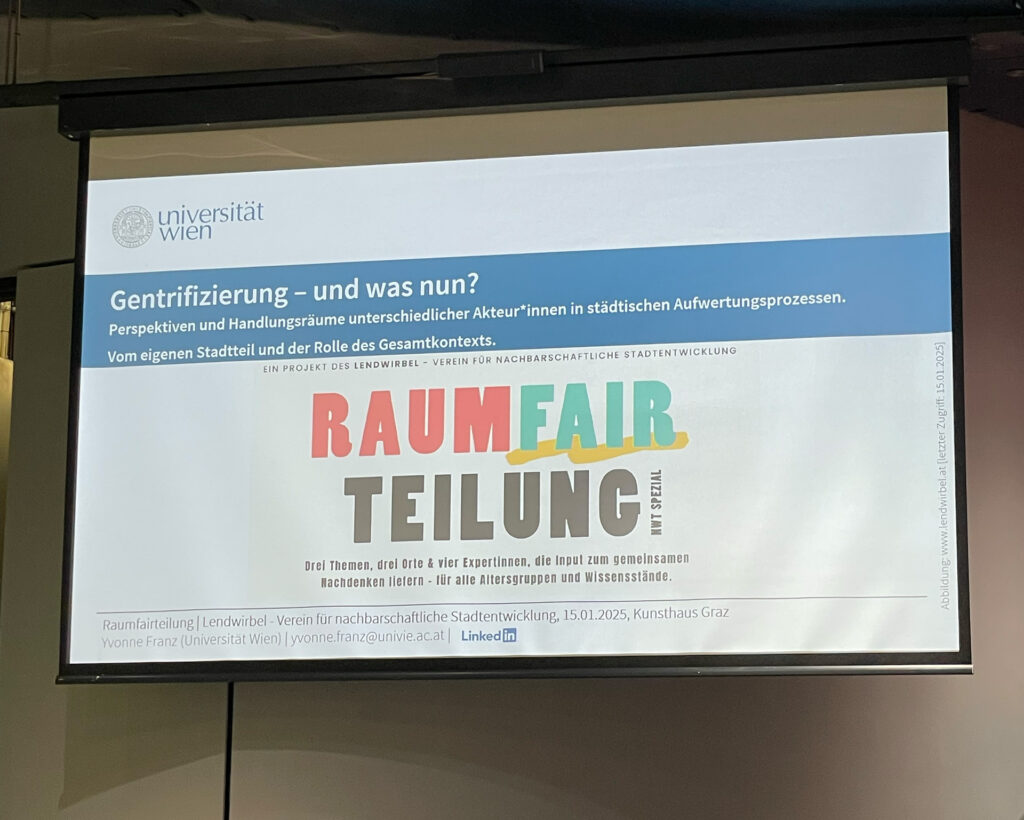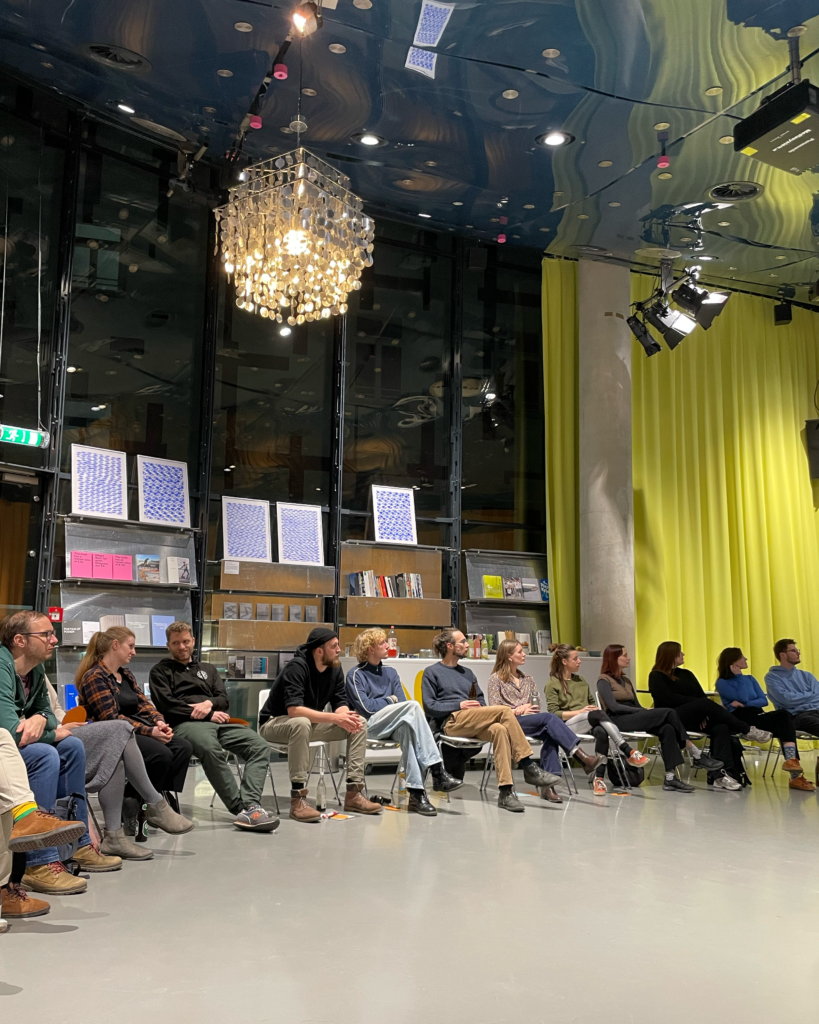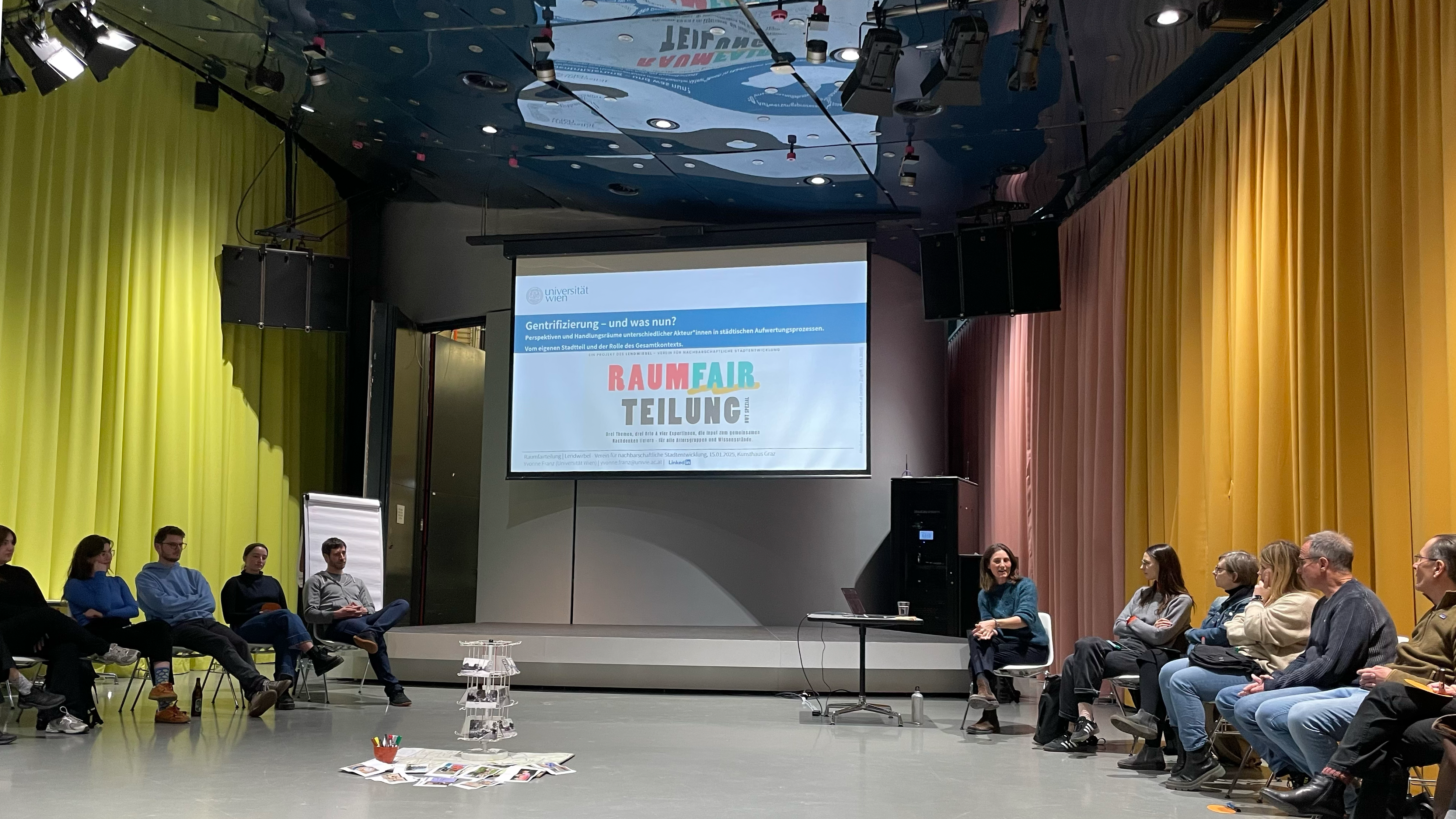As an exchange student in Graz I would like to immerse myself in local discussions and cultural activities. My friend invited me to join them at a talk organized by the LENDWIRBEL team at Kunsthaus. The series of events is called „RaumFAIRteilung – Wem gehört die Stadt? ”.
The event series consists of three different sessions with different focal points. The talks give the opportunity to gain deeper insights into the topic of fair distribution of space and to discuss forward-looking ideas with scientists.
What is LENDWIRBEL?
The LENDWIRBEL stands for the communal design of a neighborhood, for the social and tolerant use of space. On their website the LENDWIRBEL states that the LENDWIRBEL was born in 2007 from a loose idea of residents and workers in Lend. People didn’t stay within their own walls, but met on the street and brought a whirl to Lend, a city district in Graz. After a few years of implementation, the association „LENDWIRBEL – Verein für nachbarschaftliche Stadtentwicklung ” was founded in 2014. The organization has been carried out by a predominantly voluntary core team of interested people for several years.
What is RaumFAIRteilung?

The LENDWIRBEL team saw need for this lecture series and discourse because urban space is increasingly becoming a highly contested resource:
- Housing is becoming more expensive.
- Public spaces are disappearing.
- Marginalized groups are often displaced.
Through the series of lectures, the LENDWIRBEL team would like to strengthen the discourse within the LENDWIRBEL association. They want to critically examine the challenges and potential of public space and develop new perspectives, including for future events. They engage critically with current topics at eye level and open the space for questions like: How can we make space fairer and accessible to all? How can we achieve solidarity with one another that does not exclude anyone?
The talk I visited was held by scientist Yvonne Franz on gentrification and what roles different actors play in urban gentrification processes.

During her talk Yvonne talked about early indicators for gentrification and her research on the topic in Vienna and Berlin. She mentioned sociologist Ruth Glass, who coined the term ‚gentrification‘ in 1964 to describe change in London. She mentioned different types of displacement and repression. After about an hour of theoretical input the organizers invited us to partake in an open question round. Once the Q&A wrapped up we gathered in the middle of the room to have a look at postcards that were printed with imagery linked to gentrification.
Key Take-Aways
- Most shifts like gentrification have early indicators that can be observed through research as early as 10 years before it becomes an issue
- The increased cost of living, that reduces the accessibility for housing space is sometimes also driven by good social initiatives like the social housing scheme in Vienna. Not everyone can apply or keep up the status for social housing. These people, if the are low-income or not, are driven to the private housing sector that displays even more dynamic pricing than elsewhere.
Links:
https://geographie.univie.ac.at/arbeitsgruppen/urban-studies/team/franz-yvonne
